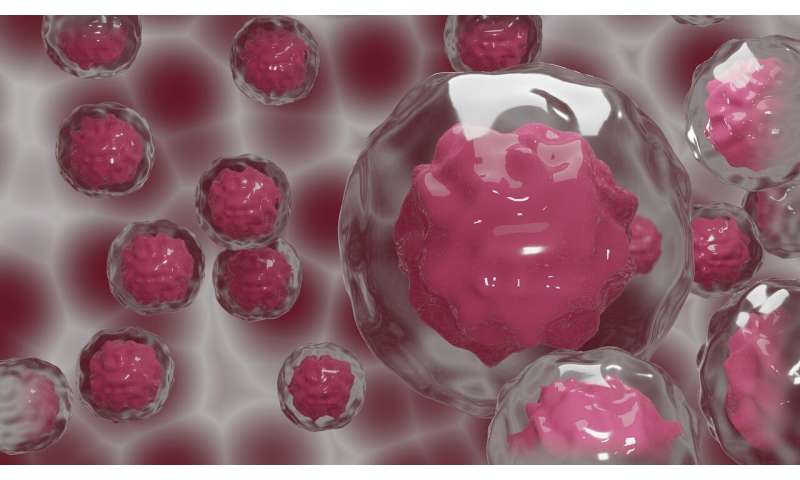New study shows SHP2 inhibition overcomes multiple therapeutic-resistance mechanisms in lung cancer

New preclinical research from The University of Texas MD Anderson Cancer Center and BridgeBio Pharma, Inc. affiliate Navire Pharma, Inc., finds that the novel SHP2 inhibitor IACS-13909 is able to overcome multiple therapeutic-resistance mechanisms in non-small cell lung cancer (NSCLC), suggesting a possible new approach to treating cancers that have developed resistance to the targeted EGFR inhibitor osimertinib.
The data is published today in Cancer Research, a journal of the American Association for Cancer Research. IACS-13909, is a potent and selective allosteric SHP2 (Src homology 2 domain-containing phosphatase) inhibitor developed through collaboration between Navire and MD Anderson’s Therapeutics Discovery division. Based on these data, Navire plans to launch a clinical study of SHP2 inhibitors by the end of 2020 at multiple US sites, including MD Anderson.
IACS-13909 was initially discovered as an SHP2 inhibitor by a team of scientists in MD Anderson’s Institute for Applied Cancer Science (IACS) and Translational Research to Advance Therapeutics and Innovation in Oncology (TRACTION) platforms, both engines within the Therapeutics Discovery division.
“Tyrosine kinase inhibitors, like osimertinib, appear initially effective in suppressing tumor growth, but multiple mechanisms of resistance can develop while a patient is still receiving treatment,” said Nancy Kohl, Ph.D., a senior author of the study and member of Navire’s scientific advisory board. “This study shows that IACS-13909’s ability to inhibit a protein downstream of multiple signaling pathways is a promising approach in overcoming these common tumor-resistance mechanisms.”
Osimertinib is a targeted EGFR inhibitor used as a front-line option for treating patients with NSCLC harboring specific EGFR mutations. However, NSLCs frequently develop osimertinib resistance over time, either through additional mutations in EGFR that block activity of the drug, or by activating compensatory signaling pathways.
SHP2 is a protein that acts downstream in these pathways, and it is required for full activation of the MAPK signaling pathways, which is known to fuel tumor growth, proliferation and survival.
“Our findings show that IACS-13909 is capable of suppressing tumor cell proliferation in vitro and causing tumor regression in vivo for lung cancers harboring a variety of activated kinases as the oncogenic driver,” said lead author Yuting Sun, Ph.D., co-project lead and senior research scientist with TRACTION at MD Anderson. “These data suggest that targeting SHP2 could provide a viable strategy for overcoming osimertinib resistance occurring through a variety of mechanisms.”
These results were consistent when IACS-13909 was used as a single agent and in combination with osimertinib in vivo. The combination treatment in vitro led to prolonged, more durable responses in tumors that were sensitive to osimertinib and stimulated tumor regression in osimertinib-resistant models.
Source: Read Full Article
